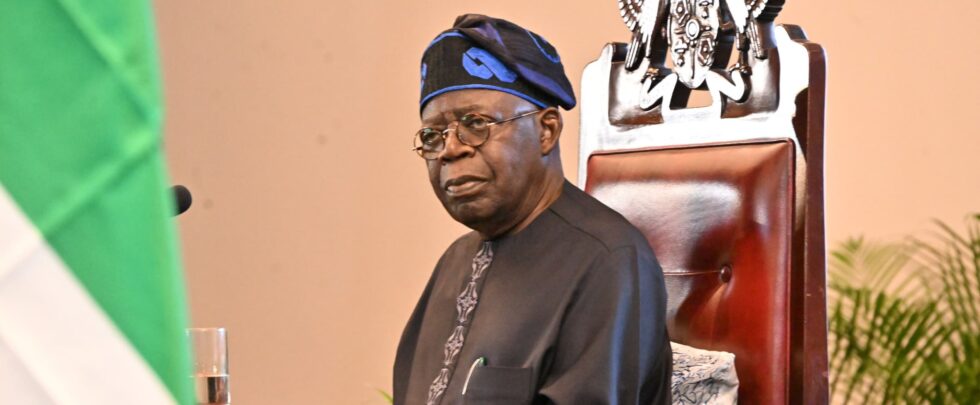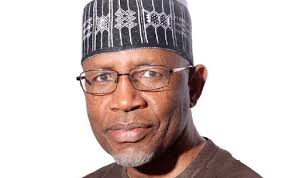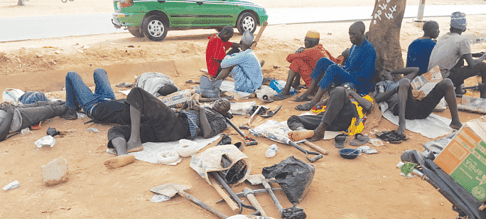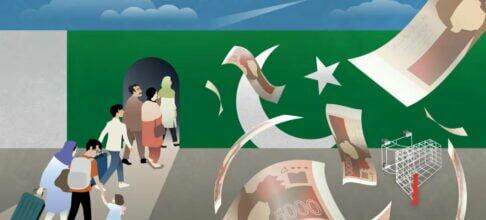● ACF, NEF allege marginalisation, say it threatens national unity, devt
● Stop blaming President for North’s problems, Uba Sani tells region’s elites
● Shettima: Tinubu prioritising empathy, inclusiveness in governance
● Wait till 2031, SGF admonishes northern politicians
● APC chieftain accuses Kwankwaso of inciting region against southern presidency Northern leaders yesterday expressed divergent views on the performance of President Bola Tinubu’s administration. While some, including the Arewa Consultative Forum (ACF), voiced disappointment and accused the federal government of neglecting the region despite its overwhelming support in the 2023 presidential election, others disagreed. Kaduna State Governor, Uba Sani, and his 18 northern counterparts defended the administration, insisting that the region has benefited from key federal interventions. The contrasting positions emerged during a two-day interactive session on government-citizen engagement held in Kaduna, organised by the Sir Ahmadu Bello Memorial Foundation (SABMF). ACF Board Chairman, Bashir Dalhatu, listed rising insecurity, poor infrastructure, declining agricultural support, and neglect in education and healthcare as key areas where the federal government has failed the North. Dalhatu said repeated engagements with the Presidency had not translated into meaningful action, describing the government’s response to the region’s concerns as alarmingly indifferent. He noted that while northerners contributed 64 per cent of the total votes that brought President Tinubu to power, they have since been marginalised in budgetary priorities, infrastructural projects, and federal appointments. “To our surprise, those who did not support him and hardly wished him well are now trying to push a wedge between him and the North,” he said. “Whether or not they are succeeding, we do not know. But we cannot pretend not to observe that over the last two years, the North has largely been sidelined.” On insecurity, Dalhatu said the North remains under siege, with insurgent groups multiplying and attacks becoming increasingly deadly. He said widespread violence — including massacres, bombings, kidnappings and cattle rustling — has crippled economic and social progress across the region. He warned that unless the federal government takes decisive and sustained action to address the root causes, especially poverty and youth unemployment, the security crisis would persist. Dalhatu also criticised the government’s continued underfunding of agriculture, noting that allocations remain below five per cent of the national budget — far short of the 25 per cent recommended by the Food and Agriculture Organisation (FAO). The ACF called on President Tinubu to increase funding for education, agriculture, infrastructure, and healthcare, and implement policies that promote equitable development across the country. Echoing similar concerns, Chairman of the Northern Elders’ Forum (NEF), Prof. Ango Abdullahi, described the marginalisation of Northern Nigeria as a threat to national unity and development. Abdullahi highlighted the growing number of out-of-school children in the region, which he said now accounts for 80 per cent of Nigeria’s estimated 20 million out-of-school children. “If just half of the N15 trillion national budget were allocated to education, we would have no child out of school. That money would provide schools, teachers, and equipment,” he said. Abdullahi also criticised the state of infrastructure in the North, saying many roads in the Northeast are either in disrepair or nonexistent. “You can’t talk about national development when a whole region remains disconnected,” he said. He proposed allocating N7.5 trillion each to education and roads in the North to address what he described as two of the region’s most urgent problems. Abdullahi further condemned the recent relocation of key Central Bank departments from Abuja to Lagos, calling the decision “suspicious and divisive”. ‘Stop blaming Tinubu for North’s problems’
However, Kaduna State Governor, Uba Sani, criticised prominent northern political leaders for blaming President Tinubu over challenges that he said had long been neglected under their leadership. He said insecurity, poverty, and educational underdevelopment in the region predated the current administration and were deepened by the silence and inaction of northern elites over the last two decades. “This engagement must go beyond ceremonial speeches. It is a moment for deep reflection,” Sani told an audience that included ministers, federal officials, traditional rulers and civil society representatives. He said the forum was not a political gathering but an opportunity to assess not only the promises made by President Tinubu but also the role of northern leaders in addressing the region’s decline. “Yes, President Tinubu made promises. But let us be honest with ourselves: he has kept faith with the North in many critical areas — security, agriculture, education, economic inclusion. The real question is, have we kept faith with our people as northern leaders?” he asked. Governor Sani, who assumed office in 2023 after serving as a senator, said the time had come for northern stakeholders to move past the “blame game” and take responsibility for solving the region’s problems in partnership with the federal government. He maintained that blaming the Tinubu administration for longstanding issues would only hinder genuine progress. Northern govs back Tinubu, reject claims of marginalisation
Similarly, northern governors reaffirmed their support for President Tinubu’s administration, distancing themselves from criticisms by some Arewa leaders alleging that the region has been marginalised over the past two years. Chairman of the Northern Governors’ Forum and Governor of Gombe State, Alhaji Muhammadu Inuwa Yahaya, said the Tinubu administration had delivered tangible results for the North despite facing significant national challenges. “Today, we gather not for empty rhetoric, but to examine those promises and assess the level of progress so far. What we find is an administration that has delivered meaningful results for our region,” Yahaya said. He pointed to key infrastructure projects either completed or ongoing in the region, including the Abuja-Kaduna-Kano Expressway, the Kano-Katsina-Maradi rail line, the rehabilitation of the Kaduna Refinery, the Abuja-Kaduna-Kano Gas Pipeline, and drilling activities at the Kolmani Oilfields. “These projects promise to bring industrial growth and energy security to Northern Nigeria,” he said, adding that new infrastructure such as the proposed Sokoto-Badagry Superhighway and agriculture value chain initiatives were further signs of federal attention to the region. On security, Yahaya said military operations and improved intelligence had led to the elimination of over 300 bandit leaders and terrorist commanders, disrupting criminal networks. He also cited the establishment of the Ministry of Livestock Development and expanded efforts to address youth development, the Almajiri crisis and out-of-school children through targeted grants and collaborative initiatives. While acknowledging the hardship caused by fuel subsidy removal and exchange rate unification, the Gombe governor described the reforms as “necessary measures” for long-term economic stability. “The pain is real, but so is the progress,” he said, urging northern stakeholders to complement federal efforts with local investments in infrastructure, education, and human capital. “Traditional rulers and religious leaders should continue their vital role in community mobilisation and conflict resolution. Business leaders and civil society must maintain their constructive engagement,” Yahaya added. Shettima says Tinubu prioritising empathy, inclusiveness in governance
For his part, Vice President Kashim Shettima said President Tinubu’s administration is committed to a governance model rooted in empathy, dialogue and inclusive reform, rather than unilateral decision-making. Shettima, who was represented by the Special Adviser to the President on General Duties, Dr Aliyu Modibbo Umar, said the administration had consistently sought public input in shaping major policies. He cited areas such as taxation, education financing and economic interventions after the removal of fuel subsidies as examples of where citizens’ voices had influenced decision-making. According to Shettima, the president’s style marks a departure from technocratic isolation and top-down governance. He said: “We are not crafting policy in solitude, nor assuming that technocracy alone delivers results. What we nurture today is not just a government of the people but a government with the people.” He noted that the recent repeal and reenactment of the Access to Higher Education Act, now known as the Student Loan Act, reflected the administration’s responsiveness to youth concerns. The Vice President said reforms to the law removed income ceilings and guarantor requirements that previously hindered access to tertiary education, adding that “no student should be disqualified for being born on the wrong side of poverty.” On tax reforms, Shettima referenced the creation of the Presidential Committee on Fiscal Policy and Tax Reforms, which has held consultations nationwide. He added that some inherited tax policies, such as the 10 per cent levy on single-use plastics and the telecom tax, were suspended following stakeholder feedback. He also defended the government’s handling of the fuel subsidy removal, saying the administration engaged labour unions empathetically and introduced measures such as wage adjustments, diesel tax waivers and the rollout of CNG buses to cushion the impact. “President Tinubu has consistently demonstrated that governance is not a theatre of perfection but a process of correction. A government that listens is a government that learns. And a government that learns is a government that leads,” Shettima said. Presidency: Wait till 2031, SGF admonishes northern politicians
The Secretary to the Government of the Federation (SGF), George Akume, has called on politicians from the northern region to wait until 2031 for their turn to contest for president. Akume made the call during his remarks at the two-day SABMF interactive session in Kaduna. The SGF commended the foundation for providing a platform where citizens and government could sit and explore ways to enhance governance, democracy, and development. He said the government of President Tinubu had spent two years and two months, adding that its achievements were fundamental and remarkable. The SGF said: “Tinubu promised impartiality in governance, and he has done that without breaking the promise. “There is a need to encourage someone who is doing well so that he can do more. There is a lot of misinformation in some aspects of the media. Tinubu has strengthened the security architecture in the country and revitalised agriculture with progressive initiatives. We have witnessed interventions that led to a reduction in prices of food produce, improved food security, and infrastructure across the country.” Akume said that Tinubu was on course to take Nigeria to the promised land, adding: “I will urge politicians from the northern region to wait till 2031. Do not join a group that will stagnate the various developments achieved by President Tinubu. The president has positively touched all parts of the country and every citizen. The removal of fuel subsidies has now provided more funds to the government at the sub-national levels to carry out huge projects and deliver quality dividends of democracy.” The SGF explained that the Renewed Hope Agenda was not a slogan but a determination to restore hope to all the regions of the country. He narrated some of the achievements in diplomacy and foreign policy, transportation, job creation, education, tax reforms, local government autonomy, national security, spo rts, the war against corruption, peace, stability, and others. Akume added, “Tinubu has laid a foundation stone for a new Nigeria through visionary leadership and commitment to bringing dividends of democracy to all citizens and regions of the country without bias. “Tinubu has appointed so many people from the Northern Region to work with him, and they are doing well. The narrative that the North is not carried along is not true. The Super Highway from Sokoto to Badagry is longer than that of Lagos-Calabar. The contract for a road from Akwanga through Jos, Bauchi, Gombe, Taraba, and other parts of the northern region will soon be awarded.” He reiterated that with the various developments in two years and two months by Tinubu, patriotic politicians should jettison their ambition for the presidency till 2031. He added that 2027 should not be in their minds, saying, “This is because Tinubu has done so well and will continue in that line to better the lot of the citizens and the country.” MEANWHILE, a former Deputy National Publicity Secretary of the All Progressives Congress, Yekini Nabena, has faulted recent remarks by ex-Kano State Governor and New Nigeria Peoples Party chieftain, Rabiu Musa Kwankwaso, concerning national development and project allocation. In a statement, Nabena dismissed Kwankwaso’s claims, insisting that no ethnic, religious, or regional sentiment can undermine the legitimacy of a southern presidency. He stressed that the South’s completion of eight years in power is non-negotiable. Kwankwaso, who contested the 2023 presidential election under the New Nigeria Peoples Party, had accused the federal government of disproportionately favouring the South in project distribution, citing poor road infrastructure in the North and a concentration of development in the South. However, the Presidency refuted his claims by releasing a list of projects, which showed that President Bola Tinubu’s administration has allocated more funds to northern projects than those in the South. Also responding to Kwankwaso’s remarks, Nabena alleged that “the former governor’s real intention was to incite the northerners against the current administration and the re-election of a southerner in 2027 to complete eight years of a southern presidency in the seat of power.” The APC chieftain said such incitement for “a political business or negotiation, like some politicians did in 2019 and 2023, can no longer work because the people now know the real intention. “The Kano voters now know who is using them for political business, and even the political gladiators now understand the tactics of political merchants.” The Bayelsa-born politician, however, dared Kwankwaso to journey through the South-South states by road and compare the condition of road networks in the oil-rich region, where the current president hails from, with those in the North. He said: “Is the North inferior or superior to the South after eight years of the North at the helm of affairs of Nigeria? “Why is Senator Kwankwaso still complaining of underdevelopment in the North when the region has just completed its eight years? “One will also wonder which of the northern money or resources was used to develop the South. Is it the gold, rice, or groundnut pyramid?
● Stop blaming President for North’s problems, Uba Sani tells region’s elites
● Shettima: Tinubu prioritising empathy, inclusiveness in governance
● Wait till 2031, SGF admonishes northern politicians
● APC chieftain accuses Kwankwaso of inciting region against southern presidency Northern leaders yesterday expressed divergent views on the performance of President Bola Tinubu’s administration. While some, including the Arewa Consultative Forum (ACF), voiced disappointment and accused the federal government of neglecting the region despite its overwhelming support in the 2023 presidential election, others disagreed. Kaduna State Governor, Uba Sani, and his 18 northern counterparts defended the administration, insisting that the region has benefited from key federal interventions. The contrasting positions emerged during a two-day interactive session on government-citizen engagement held in Kaduna, organised by the Sir Ahmadu Bello Memorial Foundation (SABMF). ACF Board Chairman, Bashir Dalhatu, listed rising insecurity, poor infrastructure, declining agricultural support, and neglect in education and healthcare as key areas where the federal government has failed the North. Dalhatu said repeated engagements with the Presidency had not translated into meaningful action, describing the government’s response to the region’s concerns as alarmingly indifferent. He noted that while northerners contributed 64 per cent of the total votes that brought President Tinubu to power, they have since been marginalised in budgetary priorities, infrastructural projects, and federal appointments. “To our surprise, those who did not support him and hardly wished him well are now trying to push a wedge between him and the North,” he said. “Whether or not they are succeeding, we do not know. But we cannot pretend not to observe that over the last two years, the North has largely been sidelined.” On insecurity, Dalhatu said the North remains under siege, with insurgent groups multiplying and attacks becoming increasingly deadly. He said widespread violence — including massacres, bombings, kidnappings and cattle rustling — has crippled economic and social progress across the region. He warned that unless the federal government takes decisive and sustained action to address the root causes, especially poverty and youth unemployment, the security crisis would persist. Dalhatu also criticised the government’s continued underfunding of agriculture, noting that allocations remain below five per cent of the national budget — far short of the 25 per cent recommended by the Food and Agriculture Organisation (FAO). The ACF called on President Tinubu to increase funding for education, agriculture, infrastructure, and healthcare, and implement policies that promote equitable development across the country. Echoing similar concerns, Chairman of the Northern Elders’ Forum (NEF), Prof. Ango Abdullahi, described the marginalisation of Northern Nigeria as a threat to national unity and development. Abdullahi highlighted the growing number of out-of-school children in the region, which he said now accounts for 80 per cent of Nigeria’s estimated 20 million out-of-school children. “If just half of the N15 trillion national budget were allocated to education, we would have no child out of school. That money would provide schools, teachers, and equipment,” he said. Abdullahi also criticised the state of infrastructure in the North, saying many roads in the Northeast are either in disrepair or nonexistent. “You can’t talk about national development when a whole region remains disconnected,” he said. He proposed allocating N7.5 trillion each to education and roads in the North to address what he described as two of the region’s most urgent problems. Abdullahi further condemned the recent relocation of key Central Bank departments from Abuja to Lagos, calling the decision “suspicious and divisive”. ‘Stop blaming Tinubu for North’s problems’
However, Kaduna State Governor, Uba Sani, criticised prominent northern political leaders for blaming President Tinubu over challenges that he said had long been neglected under their leadership. He said insecurity, poverty, and educational underdevelopment in the region predated the current administration and were deepened by the silence and inaction of northern elites over the last two decades. “This engagement must go beyond ceremonial speeches. It is a moment for deep reflection,” Sani told an audience that included ministers, federal officials, traditional rulers and civil society representatives. He said the forum was not a political gathering but an opportunity to assess not only the promises made by President Tinubu but also the role of northern leaders in addressing the region’s decline. “Yes, President Tinubu made promises. But let us be honest with ourselves: he has kept faith with the North in many critical areas — security, agriculture, education, economic inclusion. The real question is, have we kept faith with our people as northern leaders?” he asked. Governor Sani, who assumed office in 2023 after serving as a senator, said the time had come for northern stakeholders to move past the “blame game” and take responsibility for solving the region’s problems in partnership with the federal government. He maintained that blaming the Tinubu administration for longstanding issues would only hinder genuine progress. Northern govs back Tinubu, reject claims of marginalisation
Similarly, northern governors reaffirmed their support for President Tinubu’s administration, distancing themselves from criticisms by some Arewa leaders alleging that the region has been marginalised over the past two years. Chairman of the Northern Governors’ Forum and Governor of Gombe State, Alhaji Muhammadu Inuwa Yahaya, said the Tinubu administration had delivered tangible results for the North despite facing significant national challenges. “Today, we gather not for empty rhetoric, but to examine those promises and assess the level of progress so far. What we find is an administration that has delivered meaningful results for our region,” Yahaya said. He pointed to key infrastructure projects either completed or ongoing in the region, including the Abuja-Kaduna-Kano Expressway, the Kano-Katsina-Maradi rail line, the rehabilitation of the Kaduna Refinery, the Abuja-Kaduna-Kano Gas Pipeline, and drilling activities at the Kolmani Oilfields. “These projects promise to bring industrial growth and energy security to Northern Nigeria,” he said, adding that new infrastructure such as the proposed Sokoto-Badagry Superhighway and agriculture value chain initiatives were further signs of federal attention to the region. On security, Yahaya said military operations and improved intelligence had led to the elimination of over 300 bandit leaders and terrorist commanders, disrupting criminal networks. He also cited the establishment of the Ministry of Livestock Development and expanded efforts to address youth development, the Almajiri crisis and out-of-school children through targeted grants and collaborative initiatives. While acknowledging the hardship caused by fuel subsidy removal and exchange rate unification, the Gombe governor described the reforms as “necessary measures” for long-term economic stability. “The pain is real, but so is the progress,” he said, urging northern stakeholders to complement federal efforts with local investments in infrastructure, education, and human capital. “Traditional rulers and religious leaders should continue their vital role in community mobilisation and conflict resolution. Business leaders and civil society must maintain their constructive engagement,” Yahaya added. Shettima says Tinubu prioritising empathy, inclusiveness in governance
For his part, Vice President Kashim Shettima said President Tinubu’s administration is committed to a governance model rooted in empathy, dialogue and inclusive reform, rather than unilateral decision-making. Shettima, who was represented by the Special Adviser to the President on General Duties, Dr Aliyu Modibbo Umar, said the administration had consistently sought public input in shaping major policies. He cited areas such as taxation, education financing and economic interventions after the removal of fuel subsidies as examples of where citizens’ voices had influenced decision-making. According to Shettima, the president’s style marks a departure from technocratic isolation and top-down governance. He said: “We are not crafting policy in solitude, nor assuming that technocracy alone delivers results. What we nurture today is not just a government of the people but a government with the people.” He noted that the recent repeal and reenactment of the Access to Higher Education Act, now known as the Student Loan Act, reflected the administration’s responsiveness to youth concerns. The Vice President said reforms to the law removed income ceilings and guarantor requirements that previously hindered access to tertiary education, adding that “no student should be disqualified for being born on the wrong side of poverty.” On tax reforms, Shettima referenced the creation of the Presidential Committee on Fiscal Policy and Tax Reforms, which has held consultations nationwide. He added that some inherited tax policies, such as the 10 per cent levy on single-use plastics and the telecom tax, were suspended following stakeholder feedback. He also defended the government’s handling of the fuel subsidy removal, saying the administration engaged labour unions empathetically and introduced measures such as wage adjustments, diesel tax waivers and the rollout of CNG buses to cushion the impact. “President Tinubu has consistently demonstrated that governance is not a theatre of perfection but a process of correction. A government that listens is a government that learns. And a government that learns is a government that leads,” Shettima said. Presidency: Wait till 2031, SGF admonishes northern politicians
The Secretary to the Government of the Federation (SGF), George Akume, has called on politicians from the northern region to wait until 2031 for their turn to contest for president. Akume made the call during his remarks at the two-day SABMF interactive session in Kaduna. The SGF commended the foundation for providing a platform where citizens and government could sit and explore ways to enhance governance, democracy, and development. He said the government of President Tinubu had spent two years and two months, adding that its achievements were fundamental and remarkable. The SGF said: “Tinubu promised impartiality in governance, and he has done that without breaking the promise. “There is a need to encourage someone who is doing well so that he can do more. There is a lot of misinformation in some aspects of the media. Tinubu has strengthened the security architecture in the country and revitalised agriculture with progressive initiatives. We have witnessed interventions that led to a reduction in prices of food produce, improved food security, and infrastructure across the country.” Akume said that Tinubu was on course to take Nigeria to the promised land, adding: “I will urge politicians from the northern region to wait till 2031. Do not join a group that will stagnate the various developments achieved by President Tinubu. The president has positively touched all parts of the country and every citizen. The removal of fuel subsidies has now provided more funds to the government at the sub-national levels to carry out huge projects and deliver quality dividends of democracy.” The SGF explained that the Renewed Hope Agenda was not a slogan but a determination to restore hope to all the regions of the country. He narrated some of the achievements in diplomacy and foreign policy, transportation, job creation, education, tax reforms, local government autonomy, national security, spo rts, the war against corruption, peace, stability, and others. Akume added, “Tinubu has laid a foundation stone for a new Nigeria through visionary leadership and commitment to bringing dividends of democracy to all citizens and regions of the country without bias. “Tinubu has appointed so many people from the Northern Region to work with him, and they are doing well. The narrative that the North is not carried along is not true. The Super Highway from Sokoto to Badagry is longer than that of Lagos-Calabar. The contract for a road from Akwanga through Jos, Bauchi, Gombe, Taraba, and other parts of the northern region will soon be awarded.” He reiterated that with the various developments in two years and two months by Tinubu, patriotic politicians should jettison their ambition for the presidency till 2031. He added that 2027 should not be in their minds, saying, “This is because Tinubu has done so well and will continue in that line to better the lot of the citizens and the country.” MEANWHILE, a former Deputy National Publicity Secretary of the All Progressives Congress, Yekini Nabena, has faulted recent remarks by ex-Kano State Governor and New Nigeria Peoples Party chieftain, Rabiu Musa Kwankwaso, concerning national development and project allocation. In a statement, Nabena dismissed Kwankwaso’s claims, insisting that no ethnic, religious, or regional sentiment can undermine the legitimacy of a southern presidency. He stressed that the South’s completion of eight years in power is non-negotiable. Kwankwaso, who contested the 2023 presidential election under the New Nigeria Peoples Party, had accused the federal government of disproportionately favouring the South in project distribution, citing poor road infrastructure in the North and a concentration of development in the South. However, the Presidency refuted his claims by releasing a list of projects, which showed that President Bola Tinubu’s administration has allocated more funds to northern projects than those in the South. Also responding to Kwankwaso’s remarks, Nabena alleged that “the former governor’s real intention was to incite the northerners against the current administration and the re-election of a southerner in 2027 to complete eight years of a southern presidency in the seat of power.” The APC chieftain said such incitement for “a political business or negotiation, like some politicians did in 2019 and 2023, can no longer work because the people now know the real intention. “The Kano voters now know who is using them for political business, and even the political gladiators now understand the tactics of political merchants.” The Bayelsa-born politician, however, dared Kwankwaso to journey through the South-South states by road and compare the condition of road networks in the oil-rich region, where the current president hails from, with those in the North. He said: “Is the North inferior or superior to the South after eight years of the North at the helm of affairs of Nigeria? “Why is Senator Kwankwaso still complaining of underdevelopment in the North when the region has just completed its eight years? “One will also wonder which of the northern money or resources was used to develop the South. Is it the gold, rice, or groundnut pyramid?
“As politicians, we all understand what the former governor is up to. He is working hard to incite the North against the southern presidency, but that has failed woefully because the South must complete the eight years in the presidency for fairness and equity.”















